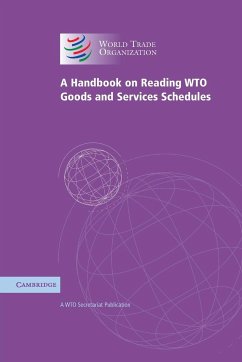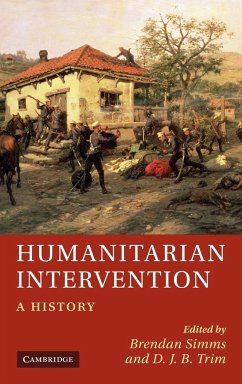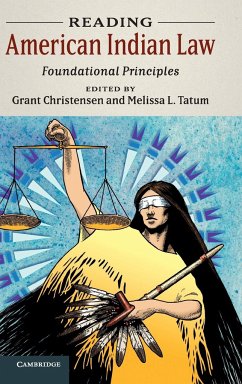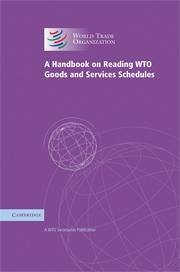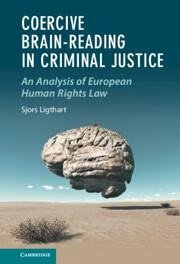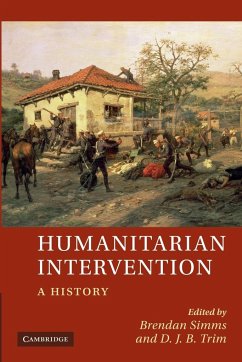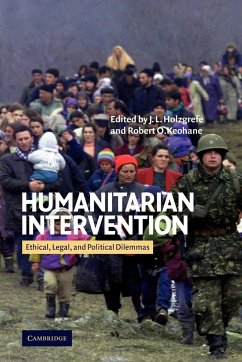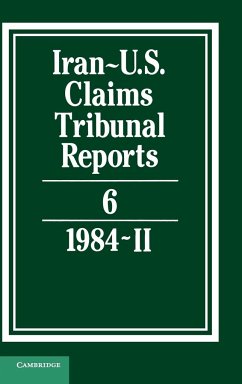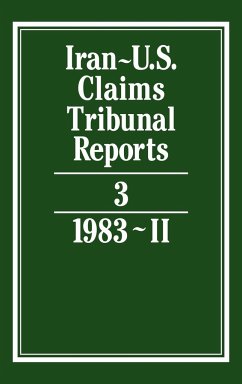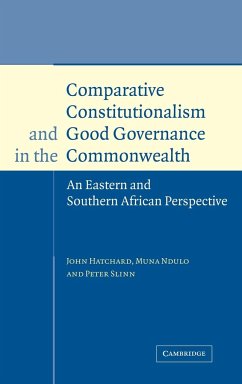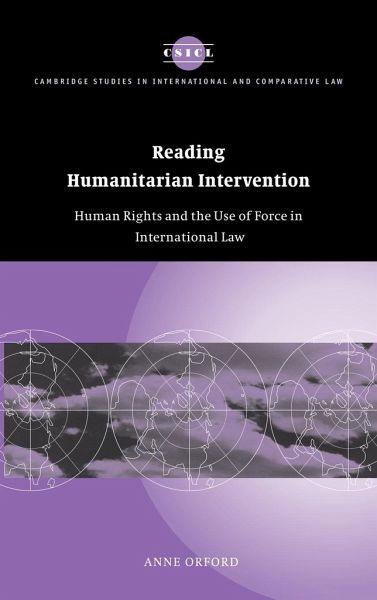
Reading Humanitarian Intervention
Human Rights and the Use of Force in International Law
Herausgeber: Crawford, James
Versandkostenfrei!
Versandfertig in 1-2 Wochen
139,99 €
inkl. MwSt.
Weitere Ausgaben:

PAYBACK Punkte
70 °P sammeln!
Uses legal, feminist and postcolonial, and psychoanalytic theory to consider the cultural and economic effects of militarised humanitarianism.During the 1990s, humanitarian intervention seemed to promise a world in which democracy, self-determination and human rights would be privileged over national interests or imperial ambitions. Orford provides critical readings of the narratives that accompanied such interventions and shaped legal justifications for the use of force by the international community. Through a close reading of legal texts and institutional practice, she argues that a far mor...
Uses legal, feminist and postcolonial, and psychoanalytic theory to consider the cultural and economic effects of militarised humanitarianism.
During the 1990s, humanitarian intervention seemed to promise a world in which democracy, self-determination and human rights would be privileged over national interests or imperial ambitions. Orford provides critical readings of the narratives that accompanied such interventions and shaped legal justifications for the use of force by the international community. Through a close reading of legal texts and institutional practice, she argues that a far more circumscribed, exploitative and conservative interpretation of the ends of intervention was adopted during this period. The book draws on a wide range of sources, including critical legal theory, feminist and postcolonial theory, psychoanalytic theory and critical geography, to develop ways of reading directed at thinking through the cultural and economic effects of militarised humanitarianism. The book concludes by asking what, if anything, has been lost in the move from the era of humanitarian intervention to an international relations dominated by wars on terror.
Table of content:
Preface; 1. Watching East Timor; 2. Misreading the texts of international law; 3. Localizing the other: the imaginative geography of humanitarian intervention; 4. Self-determination after intervention: the international community and post-conflict reconstruction; 5. The constitution of the international community: colonial stereotypes and humanitarian narratives; 6. Dreams of human rights; Bibliography; Index.
During the 1990s, humanitarian intervention seemed to promise a world in which democracy, self-determination and human rights would be privileged over national interests or imperial ambitions. Orford provides critical readings of the narratives that accompanied such interventions and shaped legal justifications for the use of force by the international community. Through a close reading of legal texts and institutional practice, she argues that a far more circumscribed, exploitative and conservative interpretation of the ends of intervention was adopted during this period. The book draws on a wide range of sources, including critical legal theory, feminist and postcolonial theory, psychoanalytic theory and critical geography, to develop ways of reading directed at thinking through the cultural and economic effects of militarised humanitarianism. The book concludes by asking what, if anything, has been lost in the move from the era of humanitarian intervention to an international relations dominated by wars on terror.
Table of content:
Preface; 1. Watching East Timor; 2. Misreading the texts of international law; 3. Localizing the other: the imaginative geography of humanitarian intervention; 4. Self-determination after intervention: the international community and post-conflict reconstruction; 5. The constitution of the international community: colonial stereotypes and humanitarian narratives; 6. Dreams of human rights; Bibliography; Index.





